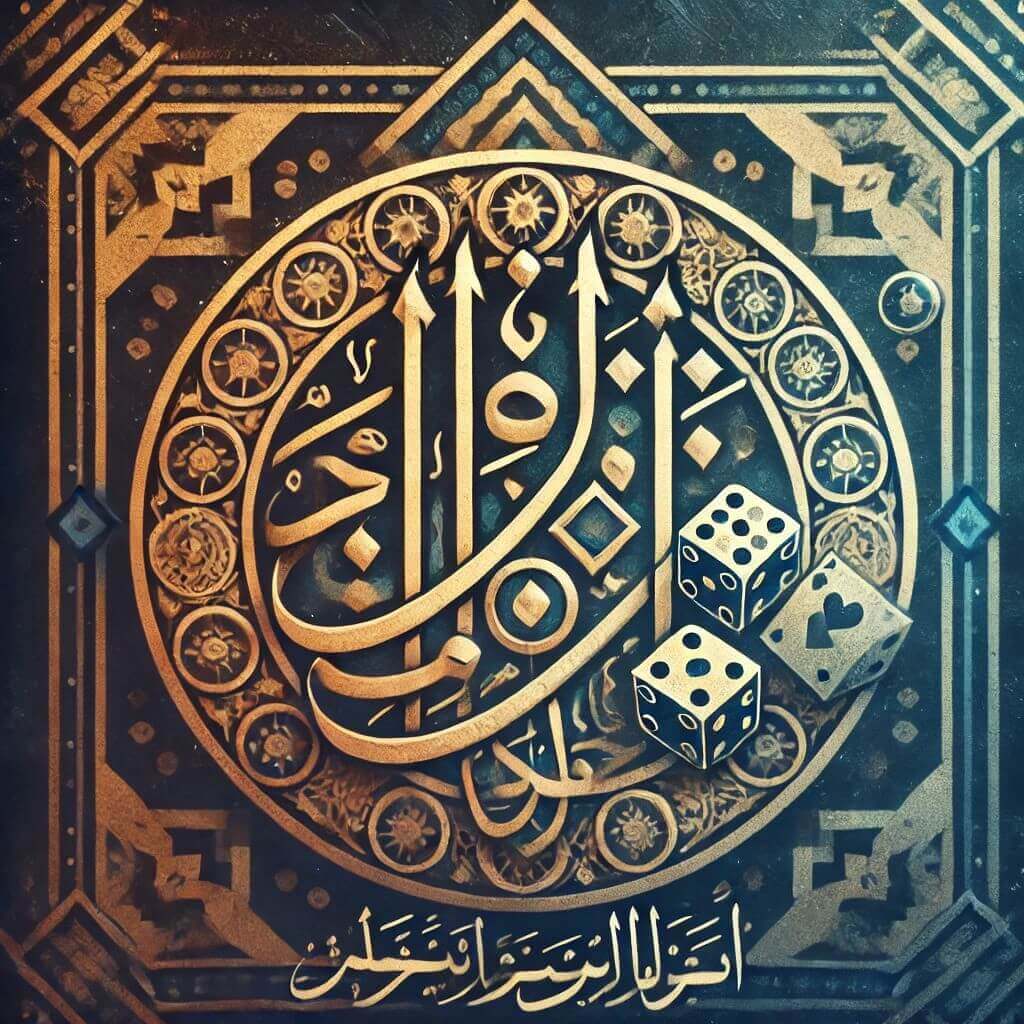Exploring Islamic Perspectives on Gambling
The practice of engaging in activities involving risk and uncertainty has been a subject of extensive discussion across different cultures and traditions. These activities often evoke a variety of reactions based on underlying beliefs, ethical considerations, and cultural narratives. The topic delves into how these elements shape behaviors and societal norms, influencing the views individuals hold regarding such pastimes.
Socio-cultural dynamics play a crucial role in how communities interpret the implications of these activities. Different groups may uphold distinct values, leading to varying degrees of acceptance or condemnation. The complexities found within these views reflect a rich tapestry of historical contexts and communal identities, weaving together faith, morality, and human experience.
Read more +
In light of this, analyzing the foundational texts and teachings reveals a nuanced framework that addresses the moral standing of engaging in risk-laden interactions. Exploring these dimensions allows for a broader appreciation of how such practices are seen through the lens of faith and moral accountability.
Islamic View on Gambling Activity
The stance on games of chance within the faith emphasizes a deep concern for ethical behavior and social responsibility. Adherents are encouraged to engage in activities that promote welfare and community enhancement, steering clear from practices that may lead to exploitation or personal harm.

Historical Context of Gambling in Islam
The practice of chance-based activities has roots that extend far back into history, finding its place in various cultures and societies. In the context of the faith that emerged in the early 7th century, these activities were viewed through a distinctive lens, shaped by the core tenets and principles of the emerging religious framework. The interactions between early followers and existing societal customs set the stage for significant discussions and rulings regarding such pastimes.
Prior to the advent of this faith, games of chance were prevalent in Arabian society, often associated with both entertainment and commerce. However, as the new religious teachings began to take hold, a re-evaluation of these customs unfolded. The texts and sayings attributed to the Prophet provided guidance, highlighting the potential moral implications of engaging in these activities. This led to a clearer stance where the distinctions between permissible amusements and those considered harmful were articulated.
Throughout history, these rulings evolved, influenced by various interpretations and cultural shifts within the broader community. Many scholars sought to navigate the complexities surrounding the role of chance and fortune, emphasizing principles such as social justice, ethics, and the importance of responsible conduct. Consequently, the discourse surrounding these practices has continued to develop, reflecting both the foundational teachings and the dynamic nature of human societies.
Religious Texts Addressing Gambling
In various religious doctrines, significant attention is given to the moral implications of games of chance. Texts elucidate the potential harms and ethical dilemmas that arise from such activities, often highlighting a lifestyle that prioritizes fairness, responsibility, and community welfare. Within these doctrines, the disapproval of certain behaviors is emphasized to guide followers toward a more righteous path.
| Source | Reference | Interpretation |
|---|---|---|
| The Holy Book | Surah Al-Ma’idah (5:90) | This verse explicitly states the prohibition of games of chance and intoxicants, categorizing them as abominations and urging believers to avoid them. |
| Hadith Collections | Sahih Muslim, Book 28, Hadith 5620 | This narration discusses the wrongful nature of betting, likening it to eating the flesh of one’s brother, thus illustrating the social and moral repercussions. |
| Scholarly Commentary | Fiqh on transactions | Throughout Islamic jurisprudence texts, scholars provide detailed analyses condemning games of chance, emphasizing the element of uncertainty and its potential to foster greed and deceit. |
Incorporating these teachings, adherents are reminded of the importance of personal responsibility and the overarching guidance that shapes their lives. The collective message is one of wisdom, urging individuals to seek alternatives that enrich rather than diminish their well-being.
Societal Impacts of Gambling Prohibition
The regulation against wagering activities has profound effects on communities, shaping their social fabric and economic dynamics. By limiting certain behaviors, societies can foster environments that prioritize collective well-being over individual pursuit of chance-based entertainment.
Enhancement of Community Well-being
Prohibitive measures can lead to a reduction in social issues such as addiction and financial distress. This creates a healthier atmosphere where individuals are less likely to engage in destructive habits. Families often experience less financial strain, leading to more robust relationships and communal support systems. Ultimately, when communities focus on supportive behaviors rather than risky engagements, a more cohesive society emerges.
Economic Shifts and Opportunities
When restrictions are placed on chance-based activities, alternative economic opportunities can flourish. Investment in education, community programs, and other businesses may gain traction, leading to sustainable economic growth. By redirecting funds that would have been lost to such activities, communities can strengthen local economies, creating more jobs and fostering a sense of shared purpose among residents.

Methods of Risk and Chance Evaluation
Exploring the assessment of uncertainty and probability involves various approaches that help individuals and groups gauge the outcomes of their choices. These methods are vital in decision-making processes, enabling a clearer understanding of potential gains and losses. By adopting systematic strategies, one can better navigate situations defined by randomness versus strategic considerations.
Statistical Analysis Techniques
Statistical methods serve as a foundation for evaluating risk levels. Techniques such as probability distributions, regression analysis, and hypothesis testing provide insights into likely outcomes based on historical data. Using these approaches enables participants to quantify uncertainties and make informed decisions based on empirical evidence.
Behavioral Approaches
In addition to statistical methods, behavioral economics plays a crucial role in understanding how individuals perceive risk and make choices under uncertainty. Cognitive biases, emotional responses, and social influences can significantly affect decision-making processes. By acknowledging these factors, one can better appreciate how human behavior interacts with numerical assessments of risk.

Contemporary Perspectives on Betting and Games
In recent years, the discourse surrounding games of chance and wagering has evolved significantly, reflecting changes in societal norms and technological advancements. This transformation has prompted discussions that extend beyond mere entertainment value, delving into ethical considerations, economic impacts, and cultural implications.
Many individuals today view these activities as recreational pastimes, often blending elements of skill and luck. The rise of online platforms has further revolutionized participation, making access easier and more widespread. As a result, a diverse range of opinions has emerged, from enthusiastic endorsements of these recreational activities to calls for regulation and responsible engagement.

Moreover, various communities are grappling with the balance between tradition and modernity. While some argue for the prohibition of certain forms of play, others advocate for a more nuanced understanding that incorporates both cultural heritage and contemporary lifestyles. This ongoing dialogue reflects the complexities surrounding personal choice, social responsibility, and the evolving nature of leisure activities.
Ultimately, the conversation continues to unfold, as individuals, families, and societies negotiate their stances on recreational play, weighing personal freedoms against the need for protection and guidance in an ever-changing landscape.
You May Also Like

With over a decade of experience in the gambling industry, encompassing both traditional and online gaming, the author has established themselves as a seasoned expert. What initially began as a simple hobby of crafting descriptions for casinos and online slot machines gradually evolved into a daily pursuit, consuming a significant portion of their time. Martins doesn’t limit their writing to online casinos alone, but also offers valuable insights into the world of sports betting. This extensive background ensures a wealth of knowledge and expertise in the field of gambling.














